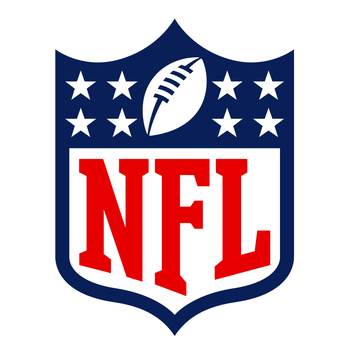NFL VIDEOS
!['I'm not paying Brock Purdy $50-55M' — T.J. weighs in on what's a fair amount to pay Purdy | Speak]()
2 DAYS AGO
![Should the Browns select Shedeur Sanders at No. 2? | The Facility]()
2 DAYS AGO
![Deion Sanders will reportedly stay out of Shedeur's draft process | The Facility]()
2 DAYS AGO
![What does Russell Wilson have left in the tank? | Speak]()
3 DAYS AGO
![Would Vikings be making a mistake signing Aaron Rodgers? | Speak]()
3 DAYS AGO
![Is Shedeur Sanders' draft stock sliding? | First Things First]()
3 DAYS AGO
![Why the Vikings should move on from Aaron Rodgers and start J.J. McCarthy | The Facility]()
3 DAYS AGO
![What does a successful season look like for Russell Wilson? | The Facility]()
3 DAYS AGO
![Could Ashton Jeanty be an Ezekiel Elliott clone for the Dallas Cowboys? | NFL on FOX Pod]()
4 DAYS AGO
![Keyshawn’s 2 for 2 with New York Giants Offseason—Will drafting Shedeur Sanders be next? | Speak]()
4 DAYS AGO
!['The goal is to win a Super Bowl' – Jalen Carter on his unfinished business heading into Super Bowl LIX]()
FEBRUARY 9
![Anthony Mackie gets us ready for Super Bowl LIX on FOX]()
FEBRUARY 9
![Super Bowl LIX: Chiefs vs. Eagles Preview | Super Bowl LIX on FOX]()
FEBRUARY 9
![Jets interview Mike Vrabel to begin coaching search, Ravens' Zay Flowers to get MRI | FOX NFL Kickoff]()
JANUARY 5
![NFL Playoffs: Chiefs, Ravens, Rams' New Year's resolutions with Terry Bradshaw | FOX NFL Kickoff]()
DECEMBER 29, 2024
![Jimmy Johnson gives Mike Vick coaching advice ahead of Norfolk State job | FOX NFL Kickoff]()
DECEMBER 22, 2024
![Michael Vick on accepting the head coaching position at Norfolk State | FOX NFL Kickoff]()
DECEMBER 22, 2024
![Bill Belichick: Julian Edelman reacts to North Carolina head coach hire | FOX NFL Kickoff]()
DECEMBER 15, 2024
![Charles Woodson reacts to Travis Hunter winning the Heisman | FOX NFL Kickoff]()
DECEMBER 15, 2024
![Tom Brady, Rob Gronkowski, and Julian Edelman: Who's the top team in the NFC? | FOX NFL Kickoff]()
DECEMBER 8, 2024










